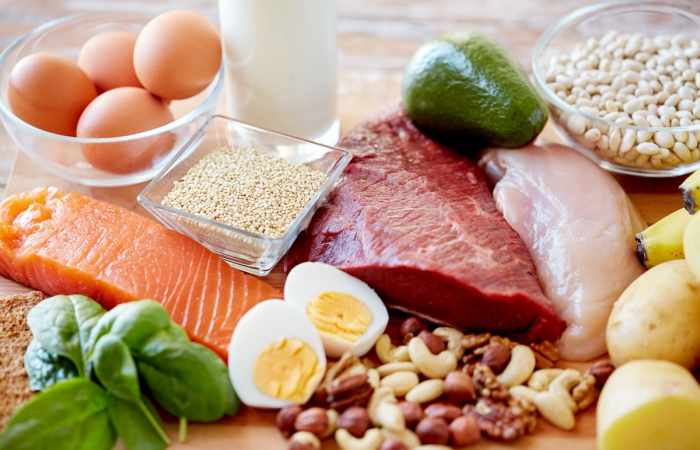Their average age was 71, and about 35% had been diagnosed, via abdominal ultrasound, with non-alcoholic fatty liver disease (NAFLD). Having too much fat in the liver can lead to liver cancer and contribute to the development of diabetes and cardiovascular disease.
When researchers studied the participants’ responses to food-frequency questionnaires, they made an interesting connection: among overweight individuals, those who ate the most calories from protein were 37% more likely to have fatty liver disease, compared to those with similar BMIs who ate the least.
Not all protein appears to be equal. Those who ate the most calories specifically from animal protein had a 50% increased risk of fatty liver disease. When the researchers adjusted for health conditions like diabetes and high cholesterol, only the link to animal protein (and not vegetable protein or total protein) remained significant.
Surprisingly, the researchers did not find an increased risk of fatty liver disease among people whose diets were high in sugars like fructose; in fact, they actually found a decrease. That association disappeared, however, after other health factors were taken into account.
This might suggest that sugar isn’t as harmful as previously suspected, the authors say, but they stress that their findings should be interpreted with caution. It’s possible, they add, that a higher intake of natural sugars—from antioxidant-rich fruits and vegetables—may explain this apparent protective effect.
The study also did not find any associations between fatty liver disease and total fat or fiber, independent of total calorie intake.
Other research has suggested that Western-style diets, rich in animal protein and refined foods, may alter glucose metabolism and acid balance in the body. These factors may also affect liver health, says lead author Dr. Louise Alferink of Erasmus Medical Centre in Rotterdam, The Netherlands. Other ingredients in processed meat products, like nitrates, salt and heme iron, could also play a role.
It’s estimated that 1 billion people worldwide, and 30% to 40% of Americans adults, have NAFLD. The disease can be treated with weight loss and lifestyle changes in its early stages, but can also lead to cirrhosis, cancer and liver failure.
The authors write that their findings supports the theory that what overweight people eat may be just as important for liver health as how many calories they consume.
“A healthy lifestyle is the cornerstone of treatment in patients with NAFLD, but specific dietary recommendations are lacking,” Alferink said in a press release. “The results from this study demonstrate that animal protein is associated with NAFLD in overweight elderly people.”Luckily for people who have or are at risk for NAFLD, there are also plenty of plant-based protein sources—including beans, peas, seeds, nuts, tofu and other soy products, and even some vegetables, like spinach and broccoli. Plant-based proteins have been shown to be just as effective at building muscle as their animal counterparts, and now it appears they may be healthier for the liver, too.
/Time/
More about: #protein










-1745485667.jpg&h=190&w=280&zc=1&q=100)





































